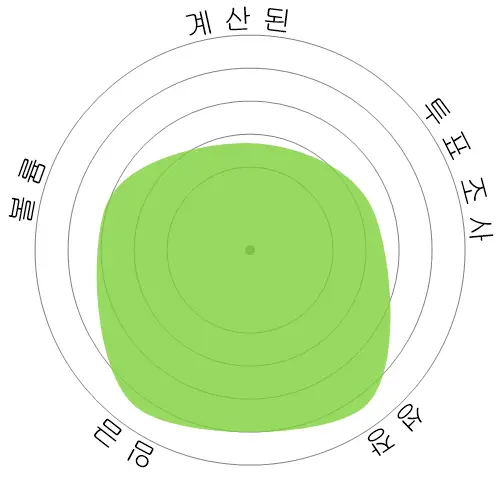정보 보안 분석가




사람들이 또한 조회했습니다
계산된 자동화 위험
중간 위험 (41-60%): 자동화의 중간 위험을 가진 직업은 보통 루틴적인 작업을 포함하지만, 여전히 일부 인간의 판단력과 상호작용이 필요합니다.
이 점수가 무엇인지, 그리고 어떻게 계산되는지에 대한 자세한 정보는 여기에 있습니다.
사용자 설문조사
우리의 방문객들은 이 직업이 자동화될지 확신이 없다고 투표했습니다. 이 평가는 계산된 자동화 위험 수준에 의해 더욱 지지받고 있으며, 이는 자동화의 58% 확률을 추정합니다.
자동화의 위험성에 대해 어떻게 생각하십니까?
정보 보안 분석가이 다음 20년 이내에 로봇이나 인공지능에 의해 대체될 가능성은 얼마나 됩니까?
감정
다음 그래프는 의미 있는 데이터를 제공할 수 있을 만큼 충분한 투표 수가 있을 때마다 포함됩니다. 이러한 시각적 표현은 시간 경과에 따른 사용자 투표 결과를 보여주며, 감정 추세에 대한 중요한 지표를 제공합니다.
시간별 감정 (연간)
성장
'Information Security Analysts' 직업 분야의 공석은 2033년까지 32.7% 증가할 것으로 예상됩니다.
총 고용량 및 예상 직업 공석
업데이트된 예상치가 09-2025에 제출될 예정입니다..
임금
2023년에 'Information Security Analysts'의 중앙값 연간 급여는 $120,360이며, 시간당 $57입니다.
'Information Security Analysts'은 전국 중위임금인 $48,060보다 150.4% 더 높은 금액을 지불받았습니다.
시간에 따른 임금
볼륨
2023년 현재, 미국 내에서 'Information Security Analysts'로 고용된 사람들의 수는 175,350명이었습니다.
이는 전국의 고용 노동력 중 약 0.12%를 대표합니다.
다시 말해, 약 866명 중 1명이 'Information Security Analysts'로 고용되어 있습니다.
직무 설명
컴퓨터 네트워크와 정보를 보호하기 위한 보안 조치를 계획하고, 실행하며, 업그레이드하거나 모니터링합니다. 시스템 취약점을 평가하여 보안 위험을 파악하고 위험 완화 전략을 제안하고 구현할 수 있습니다. 디지털 파일과 중요한 전자 인프라를 보호하기 위한 적절한 보안 제어가 있는지 확인할 수 있습니다. 컴퓨터 보안 위반과 바이러스에 대응할 수도 있습니다.
SOC Code: 15-1212.00


댓글
Leave a comment
It'll be a race between red and blue team businesses to implement increasingly better models. Social engineering sure, but meh honestly. Will you be able to find incredibly difficult scraps or oversights the model missed? Will it be worth the risk and investment of the pentester? Overall bleak outlook.
This will increase the ability of automated systems to detect any remaining vulnerabilities, but will not completely remove the need for technicians to maintain, remediate, and upgrade the systems. There will still be a need to touch the hardware. Depending on individual situation, some companies will use more of AI tech than the others. We can already see something similar in the engineering, accounting, and law practice, where paralegals and drafters have not been completely replaced by software. Sole practitioners might use automation more extensively than the large corporations, but there will be a legal requirement for a human audit.
In addition, location-independent digital nomads who train themselves to use the automation tools could do a lot of accurate work in a short amount of time, as independent consultants and freelancers, and do business with multiple clients.
Making the choice to transition from repetitive and tedious manual work to automation, will be akin to transitioning from flintstones to nuclear power. Nuclear power still needs humans, and so will information security solutions.
이 직업에 대한 답글을 남겨주세요.